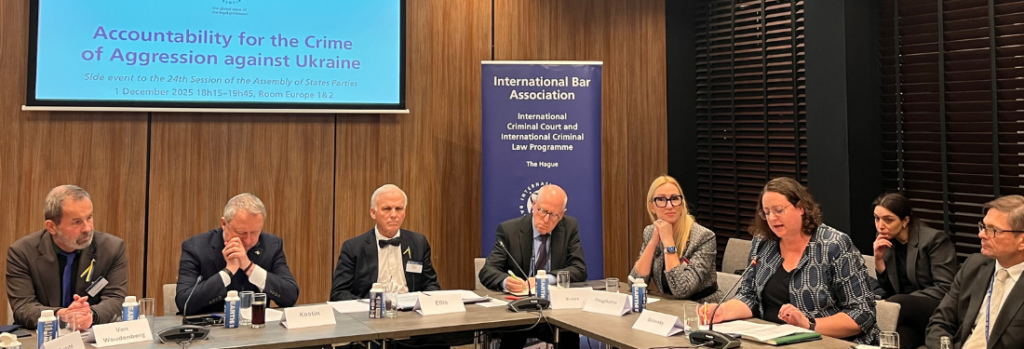

Our purpose: Promoting peace through criminal justice – preventing crimes of aggression
Through the United Nations Charter, States have expressed their commitment “to save succeeding generations from the scourge of war”. They have agreed to renounce the illegal threat or use of force, and to settle their disputes “by peaceful means in such a manner that international peace and security, and justice, are not endangered”. States have the legal duty to abide by this commitment and the UN Security Council has the primary responsibility to enforce it.The Nuremberg Trials made it clear that criminal justice also has an important role to play for the promotion of peace and the deterrence of acts of aggression – though it remained limited and theoretical for many decades thereafter. With the 2010 Kampala amendments to the Rome Statute of the International Criminal Court, States Parties created a new mechanism to enforce the most important rule of international law: the prohibition of the illegal use of force under the United Nations Charter. This website is dedicated to making accountability a reality.
News
Statement by the Global Institute for the Prevention of Aggression on the Situation in Venezuela: The Global Institute for the Prevention of Aggression (GIPA) condemns the United States of America’s act of aggression against Venezuela. For the full statement, see here.
The Global Institute for the Prevention of Aggression congratulates Professor Gregory Gordon on the publication of his new book “Nuremberg’s Citizen Prosecutor: Benjamin Ferencz and the Birth of International Justice” (2025). 
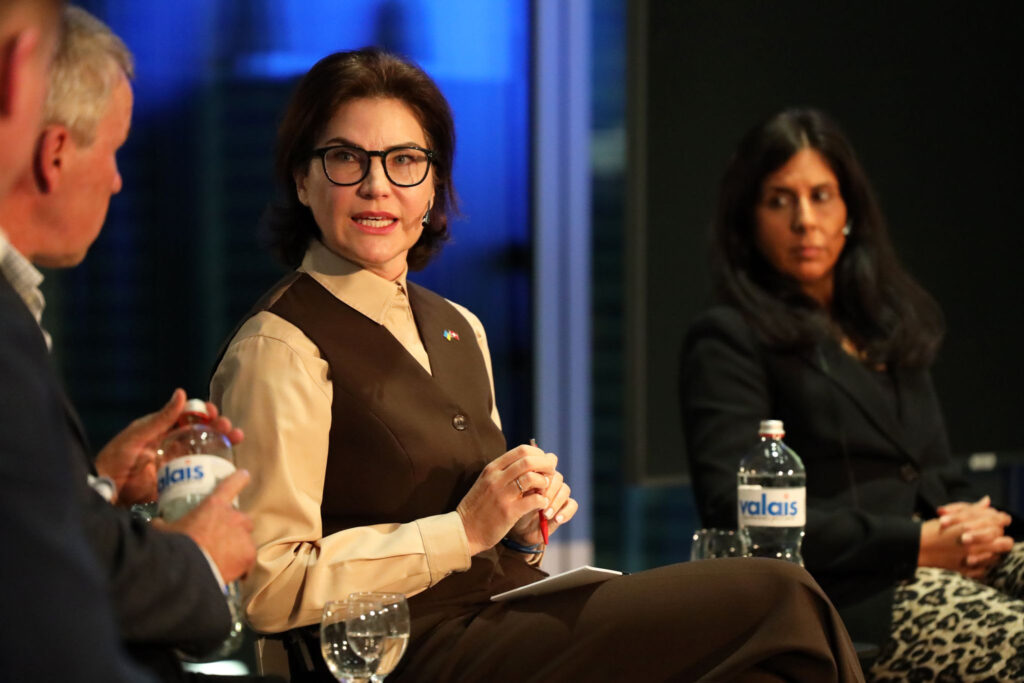
Side events on the crime of aggression at the Assembly of States Parties: The crime of aggression was a key focus of side-event panels at the 24th session of the Assembly of States Parties to the ICC held in The Hague from 1 to 5 December 2025.
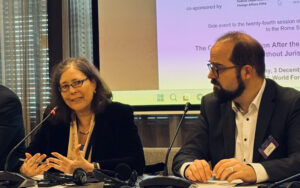
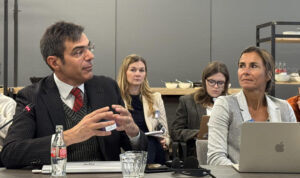
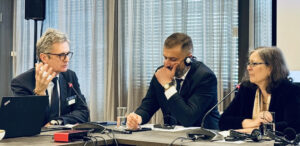 On 4 December 2025, the International Nuremberg Principles Academy organized a panel discussion on “80 years after Nuremberg – Quo Vadis, ICC? The Future of the International Criminal Justice in a Divided World”. Liechtenstein Ambassador Christian Wenaweser was among the panelists who explored strategies to ensure that the principles of Nuremberg continue to guide international justice amid global division.
On 4 December 2025, the International Nuremberg Principles Academy organized a panel discussion on “80 years after Nuremberg – Quo Vadis, ICC? The Future of the International Criminal Justice in a Divided World”. Liechtenstein Ambassador Christian Wenaweser was among the panelists who explored strategies to ensure that the principles of Nuremberg continue to guide international justice amid global division.LSE event “The crime of war: from the Nuremberg trial to Ukraine”: On 8 October 2025, GIPA member Professor Claus Kreß was invited to speak at the London School of Economics and Political Science about the prospects for international law and the crime of aggression after Ukraine and in the light of the historic first aggression trials at Nuremberg. The event was chaired by Professor Gerry Simpson (LSE), a former legal adviser at the ICC negotiations in Rome and at the UN. A video of this event is available here.
Panel at the United Nations: On 28 October 2025, GIPA Executive Council member Ambassador Christian Wenaweser and GIPA Convenor Professor Jennifer Trahan spoke on a panel entitled: “80 Years After Nuremberg and Tokyo: The Special Tribunal for the Crime of Aggression against Ukraine as a Building Block for a System to Support Peace and End Impunity for Starting Wars”. The panel was moderated by GIPA Council of Adviser member Dr. David Donat Cattin. Other panelists included Dr. Iryna Mudra (Deputy Head of the Office of the President of Ukraine), Lithuanian Ambassador Rytis Paulauskas, James Goldston (Open Society Justice Initiative), Jörg Polakiewicz (Legal Advice and Public International Law, Council of Europe), Lóránt Havas (European External Action Service) and Dr. Viviane Dittrich (International Nuremberg Principles Academy). 
Symposium Issue Honoring the Life and Work of Benjamin B Ferencz: The Cardozo International & Comparative Law Review dedicated its latest issue on the work of the co-founder of the Global Institute for the Prevention of Aggression (GIPA) Benjamin B. Ferencz. Five members of the GIPA were among the academics who contributed articles to the issue: Noah Weisbord described Ferencz’s worldview during the Cold War. Jennifer Trahan wrote about the limited jurisdiction of the ICC over the crime of aggression, an issue that Ferencz was deeply distressed by, and offered ways to amend it. David Donat Cattin explained the unique function of the crime against humanity of “other inhumane acts” in the progressive development and codification of ICL. Daniel D. Ntanda Nsereko explored the exceptions to head of state immunity. Gregory S. Gordon revisits the birth of ICL’s victim restoration-reparations regime to conceptualize its modern reform.

